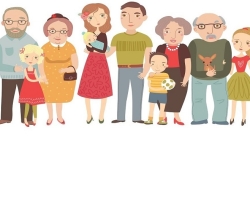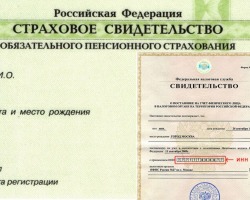It is important to be able to correctly refuse the candidate after the interview. How to do this, read in the article.
Content
- Is it necessary to give an answer in case of refusal after an interview: when should this be done?
- Reasons for the refusal to the candidate after the interview
- How to inform the candidate in case of refusal after an interview: a letter by mail, in electronic form, at a personal meeting, a phone call
- What is the way to refuse the candidate after the interview is better?
- How should you not refuse a candidate?
- How to correctly and politely refuse the candidate after the interview: Example
- Video: Refusal to the applicant after the interview
- Video: We will call you back. Real reasons for the refusal of the interview
Each self -respecting company is interested in the best frames. But the selection of a candidate is a competition. At first, a dozen good (and even good) specialists with excellent experience or excellent profile education claims to be a vacancy.
Read in another article on our website: "How to write in the questionnaire unemployed or temporarily non -working?". You will find out when the unemployed is indicated, and in which cases - temporarily non -working.
But a fact is a fact - there comes a moment when the choice has already been made. This is one of the most intense points for the employer - after all, all other applicants will have to be refused. How to do this right? Read about this in this article.
Is it necessary to give an answer in case of refusal after an interview: when should this be done?

Representatives of some organizations do not consider it necessary to notify people that they did not go through the competition in their company and the right person has already been found. But keeping the candidate is not completely correct. Of course, most applicants for a vacancy sends a resume to different companies. But it happens that a person is waiting for a call and does not seek a new job only because he did not finally receive clarification from the enterprise where the test period or interview was held. Is it necessary to give an answer in case of refusal after an interview? When should this be done?
- It is certainly necessary to tell a person that he does not suit you.
- It is important to do this as politely and tactfully as possible. Of course, many leaders are embarrassed by a categorical answer and get away from it.
- However, it should be remembered that the applicant is your partner. Do you find the strength to say that sales are falling or delayed deliveries? So it is with people who came to settle down in your company.
In order to avoid misunderstandings, in the final part of the interview you need to set specific terms so as not to take time from a person. For example, "We will not call you back", but you need to answer this way:
- "Expect our call within a week"
- "We will give you the final answer after 2 days"
- "Call us tomorrow from 10 to 19, and we will tell you"
If there is a special council or college of several managers and one of the directors does not know the exact deadlines, it can call the approximate:
- "The answer regarding your candidate will be issued in a week"
- “Until the end of April it will become known whether you will become a new member of our team”, etc.
Naturally, the specified terms should be memorized and performed. If you promised that next week you will call you back or your representative, be sure to do it.
If 300 people do not pretend to be a vacancy (which is extremely rare), it is better to honestly call or write to each of the applicants that they have not passed the competition for your vacancy. Then a person will not amuse himself in vain hopes, but will continue the search.
Reasons for the refusal to the candidate after the interview

Each leader reserves the right to take a person to work or not to take. It happens that even the masters of their craft are denied. This happens for various reasons. What? Here are the reasons for the refusal to the candidate after the interview:
Lack of work experience:
- Of course, where will a person take experience if he is not taken? But many companies do not want to be “nannies” and teachers. They need an employee who will immediately show an excellent result, and motivate other employees.
- That is why people who have just graduated from the university or those who worked in other companies without a work book may arise difficulties when searching for work.
Personal animosity:
- Of course, this is discrimination. But this happens.
- Antipathy of the leader can occur suddenly: because of the origin of a person, his timbre of voice, diction and even hairstyles or clothes.
- Many companies provide for a dress code. Looking at the initial appearance of the applicant, the leader involuntarily thinks about whether a person can correspond to him.
- At the risk group of a man with vegetation on their face or atypical hairstyles, as well as women in too frank outfits and with an abundance of makeup.
Sexual character:
- Quite often, young women are refused vacancies, because they are afraid that after 1-2 months they will become pregnant, go on maternity leave and will have to look for a new employee.
Lack of specialized education:
- Suppose a person studied for a translator, and then he decided to “retrained” and finished programming courses.
- But these are just courses, the lower step. Therefore, they are unlikely to take him to the programmer’s vacancy in a decent company. Even if he understands all the subtleties.
- In cases of a sharp change in activity, it is better to get a second, specialized education in absentia and only then try to conquer a new path.
The candidate does not meet the requirements:
- Let's say the company is looking for a young man 18 to 25 years old. I came for an interview 40-year-old man. Of course, he may look young. But in this case, all the same, they look not at the face, but at the passport.
- If the announcement indicates that the employee must be not older than 25Perhaps the applicant will be listened to, but they will not call him back.
The candidate frankly “failed” at the interview:
- This is not necessarily a lack of professional competence.
- The leader could notice any frightening factors: the presence of tattoos, a pungent smell of tobacco and other signs of bad habits, etc.
- Also, a person can scare the director with excessive apathetic or excessive zeal, or modesty and temper.
Of course, there are other reasons for the refusal, and you, as a job applicant, are unlikely to find out why you are denied your position, but do not worry and do not get hung up on this. If you were refused, start finding a new job, because you will find your place and your favorite work anyway.
How to inform the candidate in case of refusal after an interview: a letter by mail, in electronic form, at a personal meeting, a phone call

As a rule, each company chooses its own way. How to inform the candidate in case of refusal after an interview?
- Plus, phone calls are that they allow you to hear the unpleasant truth directly.
- However, in the process of sending out emails, the company will save time: after all, you can simply establish a newsletter for all applicants with the same text. Only names and patronymic will change.
- Many managers prefer to use ordinary mail, sending paper letters with refusal.
A letter by e -mail is a good option. In most cases, it looks approximately like this:
Hello, Andrey Vladilenovich!
05/20/2021 You were an interview in our company "Happy Kids" for the post of seller-consultant of children's clothing. Experts appreciated your professional qualities, work experience, unique skills and creative approach. But, alas, the final choice fell on another candidate. We will save your data in case this vacancy is freed. The company "Happy Kids" wishes you success and good luck in looking for a job.
Sincerely, personnel manager,
Kharitonova S.V.
As for the personal meeting as a way to communicate unpleasant news, it is practically not used. The exception is cases when the candidate has so negatively proved himself to be a previous meeting or on a trial period that he would like to tell him about it.
Also, a great option to notify the applicant is a phone call. In this case, the conversation will be such an approximate content:
— Good evening, Mikhail Vitalievich! Excuse me, I don't distract you?
- No, - the candidate answers.
-My name is Maria, I am the representative of E-Global. On December 21, you took our interview for the WASTER “Computer Set Operator”. Alas, we are forced to refuse you.
“Let me find out the reason for the refusal,” the candidate asks.
- Mikhail Vitalievich, the speed of typing in a foreign language that you showed during the internship is insufficient. We need a person who can not only quickly gain documents, but also think quickly.
“I understand,” says the candidate.
- Thank you very much for your participation in the competition! E-Global wishes you success and congratulates you on the upcoming New Year!
- Thank you, and you too.
Both of these options are suitable for refusal. Read below even more useful information.
What is the way to refuse the candidate after the interview is better?
Examples of deviations from applicants from applicants were published above. But what is the way to refuse the candidate after the interview is better?
- In cases where there are less than 6 applicants, it is best to contact each by phone personally.
- Of course, you can make a template of email. But a person may have questions why he did not fit this vacancy.
- Telephone conversation It will help him immediately find out the answer. Do not have to write to the company again to find out the reasons for the refusal.
If, however, a low -level staff or people are selected, it is wiser to send out emails.
How should you not refuse a candidate?

It is important to reject the application from applicants correctly so as not to offend people. How should you not refuse a candidate?
- You should notify people about an unpleasant event on a friendly note, without aggression and pressure.
- The applicant should not conclude from communication that he is a bad and unworthy person.
- He must only understand that something in his candidacy is not enough to get a job in this company.
As for the reasons for the refusal, they can not be said if the candidate is not interested. If he asks “why I don’t fit”, he should be tactfully explained to him. However, you should never switch to personalities and use phrases like:
- “Yuri Andreevich, you will not become our employee, because you are full in programming.”
- “Olga Yuryevna, you would have to lose weight a little, and then we would definitely take you a secretary. But now we cannot do this, because you will spoil the image of our company ".
In general, you should not give any comments regarding the appearance of the applicant. You consider it not as a model from the cover of the magazine, but as a specialist.
How to correctly and politely refuse the candidate after the interview: Example
As a rule, in each resume you can find a potential reason for the refusal. Suppose: "Lack of work on labor and recommendations over the past five years", "Inconsistency of age", "Insufficient professional skills" etc. How to correctly and politely refuse the candidate after an interview?
Here is an example (phone call):
- Hello, Svetlana Yuryevna! Is it convenient for you to talk now?
- Yes, what do you want?
- My name is Julia. I am a personnel manager of Startek. Have you been an interview with us for the post of deputy director?
- Yes, passed.
- Svetlana Yuryevna, let me upset you. Excuse me, but you do not suit us.
- Can I find out the reason?
- We need a person who has already worked in a leadership who has real experience in managing the team. You have a very good specialized education, but, as far as I know, you are 21 years old and you have just graduated from the university. Sorry, but we need a more experienced person. I really hope that with my call I did not spoil your evening.
- No, that you are all right. I understand.
- Olga Yuryevna, we wish you good luck in looking for a job! If the right vacancies suddenly appear, we will call you back.
- Yes, please.
- All the best! Goodbye!
- Goodbye!
As you can see, it is very simple to refuse the applicant correctly. At the same time, a person will not be offended and will understand everything. Thanks to polite communication, he will not lose faith in himself and continue the search. And you can work with a worthy candidate who was selected as a result of a large competition. Good luck!
Video: Refusal to the applicant after the interview
Video: We will call you back. Real reasons for the refusal of the interview
Read on the topic:
- How to write a characteristic for an employee, an employee from the place of work?
- When is the vacation without detention on the initiative of the employee?
- Does the employee have the right to use the vacation for the first year of work?
- After how many months is the vacation to the employee?
- What to write about yourself, how to characterize yourself in a resume: Example







